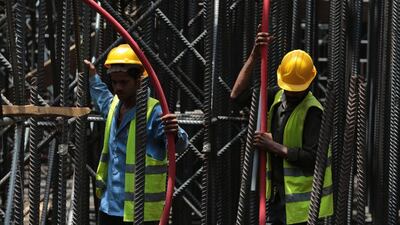Companies in Saudi Arabia may soon be able to pay fees to bypass restrictions on the hiring of foreign workers.
The country aims to raise US$10 billion in new revenues by allowing firms to pay to exceed quotas on foreign hiring. It is also examining a programme similar to the US Green Card, which allows foreign workers to obtain permanent residence in the US, Prince Mohammed bin Salman, the deputy crown prince, said in an interview with Bloomberg. He did not provide further details.
Saudisation rules require companies operating in the country to hire a certain percentage of Saudi nationals. The share of Saudi to foreign workers varies depending on the industry and the company’s size. Companies that fail to meet Saudisation targets face a range of restrictions on access to and renewal of visas for foreign workers. Out of a total population of more than 30 million, about 10 million are expatriates.
Many companies would be willing to pay fees in order to hire more foreign labour, said Radhika Punshi, the director of consulting at The Talent Enterprise, a human resources research company.
“This should lead to a more competitive labour market, where companies can decide how much foreign labour they are willing to pay for. It will provide more of a push for local labour to become more competitive, because it will make foreign workers more expensive,” she said.
“It’ll be interesting to see whether companies pass on these costs to employees and if so, how far.”
One study by the economist Jennifer Peck, a research fellow at Harvard Kennedy School, found that introduction of Saudisation had led about 11,000 companies to shut down over a 16-month period as a result of the rules. Ms Peck says the policy added 73,000 Saudi jobs in that period, at a cost of 418,000 foreign jobs, most of which were lost in construction and manufacturing, where companies struggle to meet Saudisation quotas.
Skill shortages in key sectors mean that the country will be unable to do away with foreign labour entirely, Ms Punshi said.
“In certain sectors – health care, education – there are significant local skills shortages. Saudi Arabia is spending massive amounts of money on infrastructure, construction and petrochemicals where they will still need expatriate skills,” she said.
“If you look at core sectors that Saudi intends to grow, those sectors will still need significant amounts of skilled labour.”
abouyamourn@thenational.ae
Follow The National's Business section on Twitter

